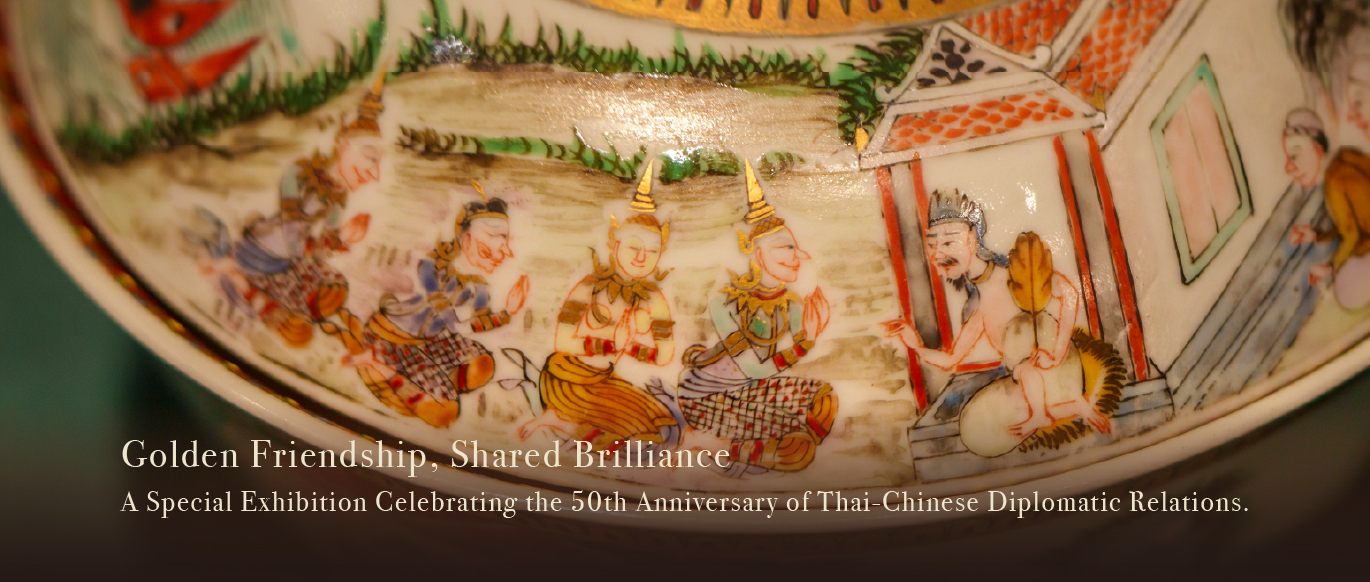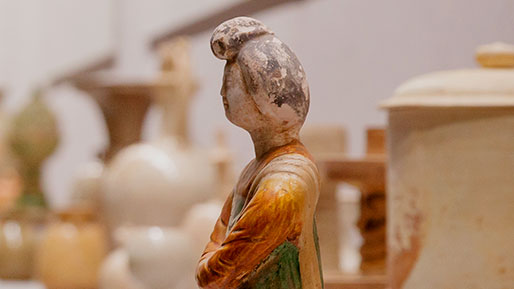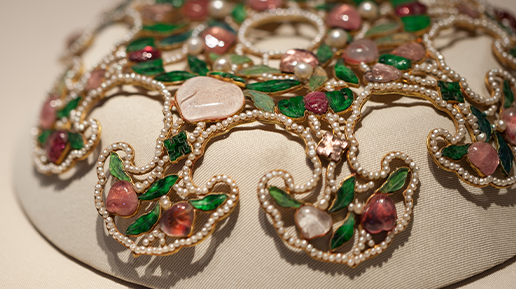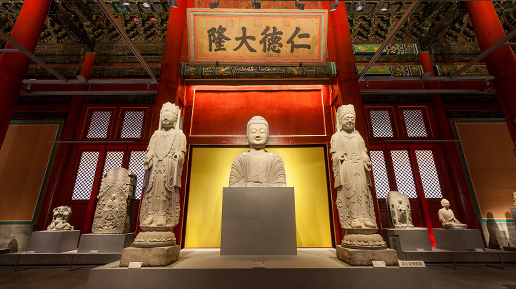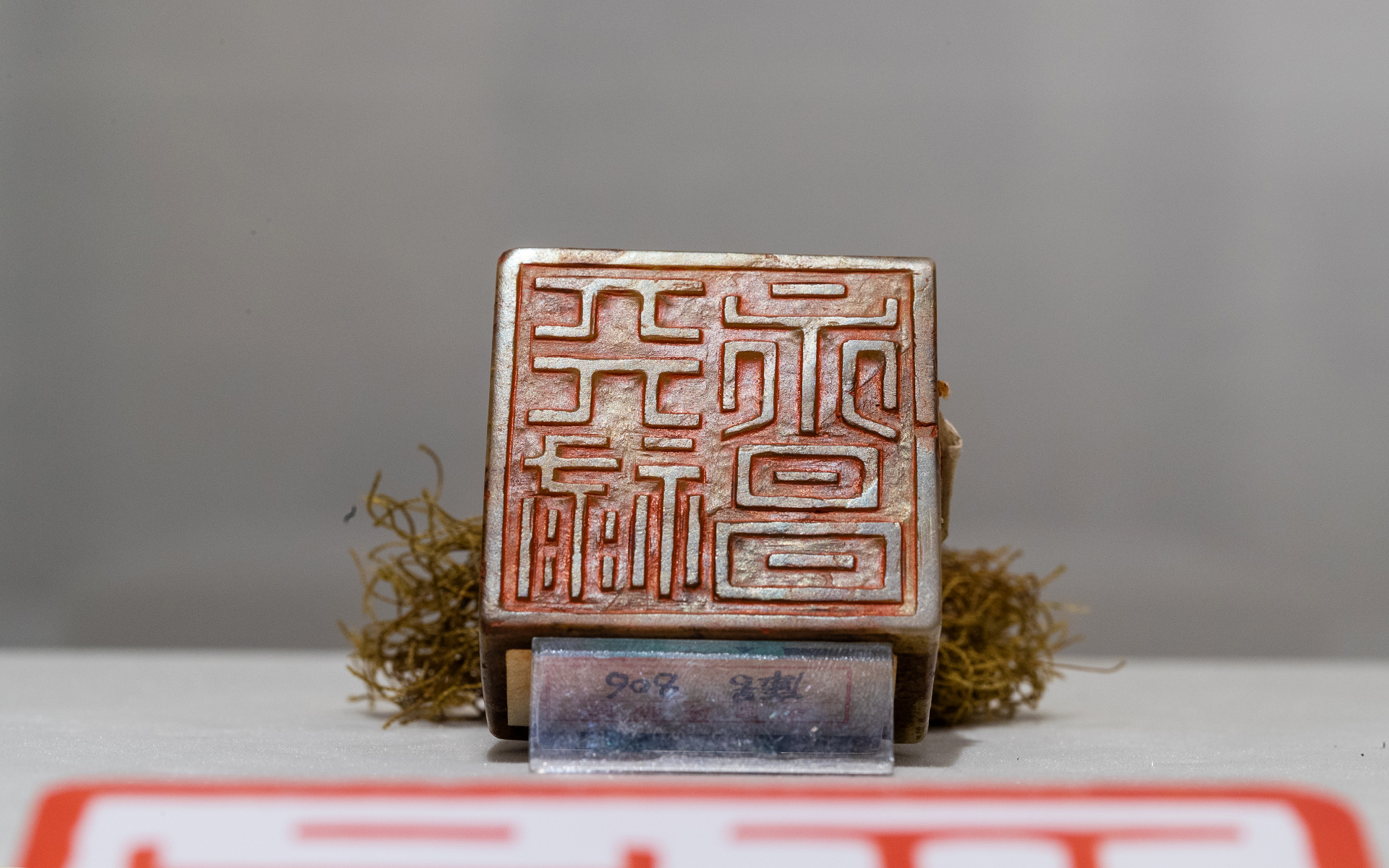
A deer in the open country calls out. An ear-pleasing echo is heard. It is a time of peace and prosperity, a time when the sounds of virtue and benevolence can be heard throughout the land.
This autumn, come to the Palace of Immortality at the Palace Museum and hear the fantastic story of the deer.
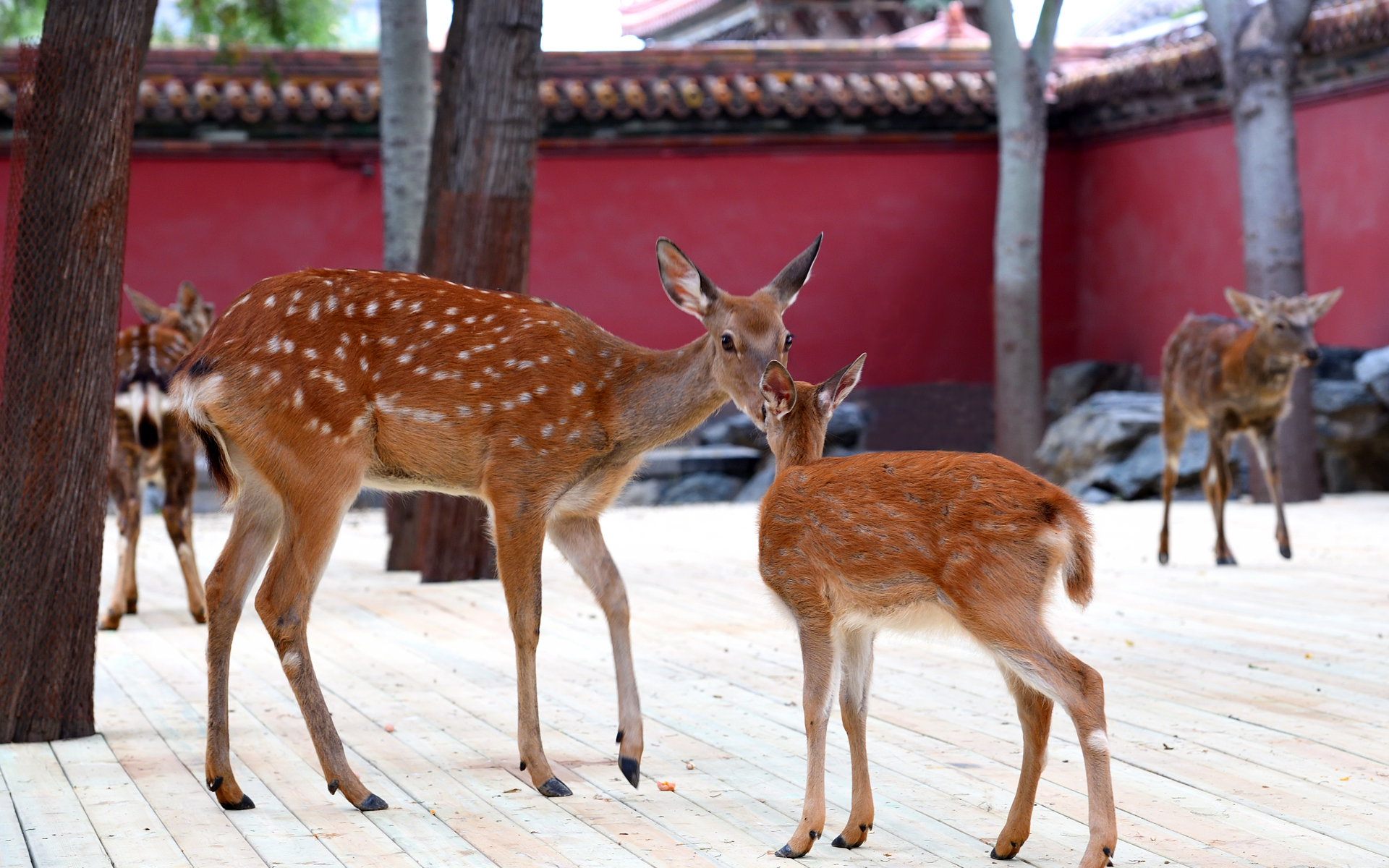
The dawn sky begins to brighten. Within the fog-wreathed trees, a deer whistler, clad with antlers on his head, a deer skin draped about his body, and a whistle slung over his shoulder, produces a succession of calls. These calls are so like that of the animal itself that the nearby does give him their attention. They approach the whistler—as do the bucks that have been pursuing them. So begins the magnificent deer hunt of old.
The Mulan Paddock, where deer and birds gather, is dense with trees and water-weeds. In late summer and early autumn (around the time of the fifteenth solar term, the \'White Dew\'), the Qing emperors and their entourages of over a thousand (including princes, dukes, ministers, and bannermen) came here to engage in an annual deer hunt known as the \'Mulan Autumn Hunt\'.
This tradition began during the reign of the Kangxi Emperor, who established the Mulan Paddock as a hunting ground. Over time, it became a fixed annual event. By the time of the Qianlong and Jiaqing Emperors, the Mulan Autumn Hunt had evolved into an indispensable state ritual and an expression of ancestral piety. It was also a means of sharpening riding and shooting skills, organizing the imperial arsenal, appeasing the Mongolians, and solidifying the Qing government’s control of the border.
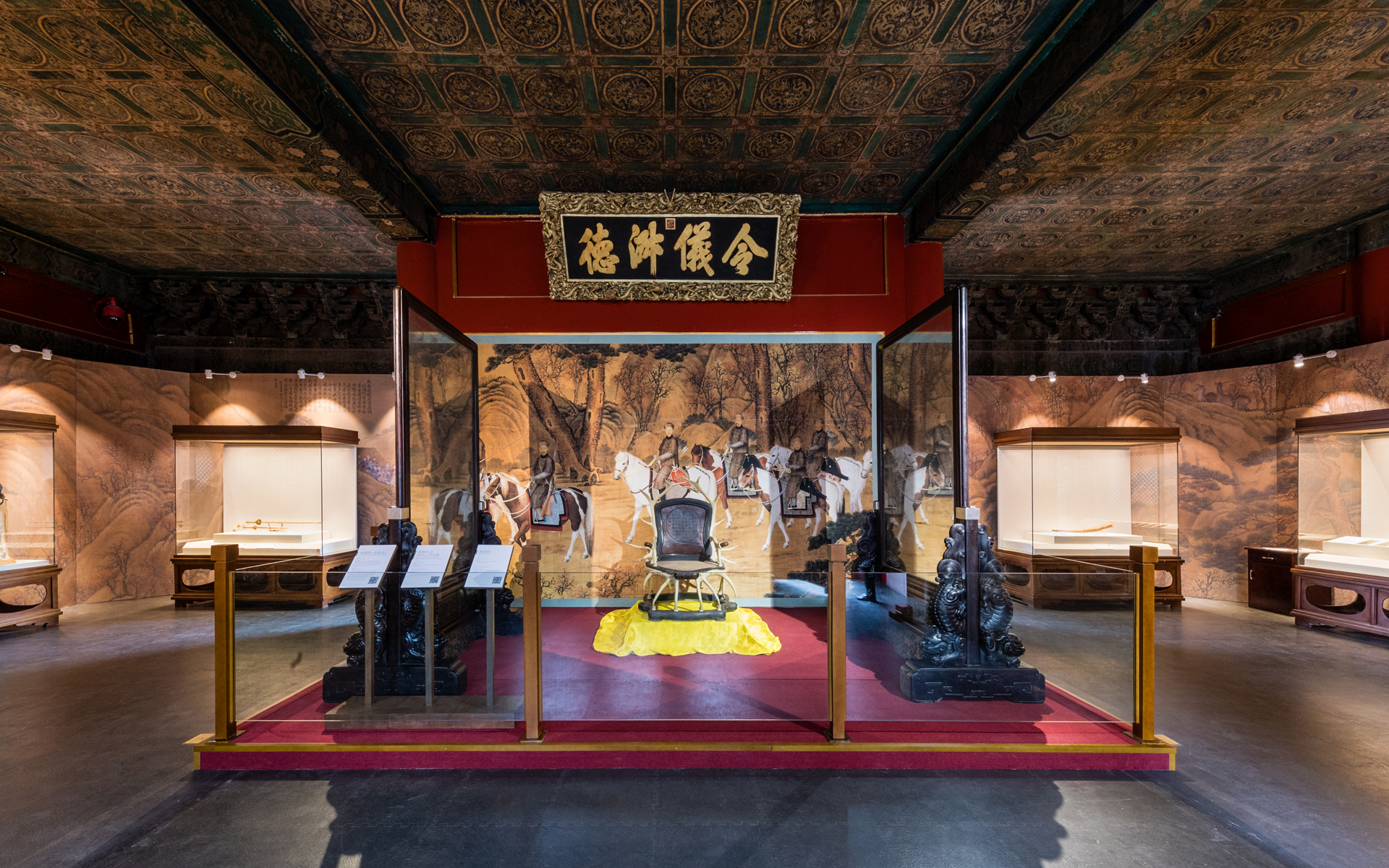
Lasting Good Fortune and Abundance
The word lu bears the meanings of \'status\' and \'official salary\', and was closely linked to its near-homophone fu (\'good fortune\'). Since the former word is a homophone with the Chinese term for \'deer\', the animal has commonly served as a symbol of happiness and good fortune. As the deer is the only animal that has the ability to find Ganoderma mushrooms, these mushrooms are commonly depicted with the deer, symbolizing longevity. The deer is also often accompanied by other symbols of good fortune, such as the Old Man of the South Pole (the Chinese deity of longevity), the pine tree, and the crane.
From ancient times, deer were raised in imperial hunting parks. Qing Dynasty craftsmen also created a number of implements with the likeness of the deer, and these were cherished by the royal family as bringing good fortune. Court artists painted beautiful and magical images of deer bounding through the wilderness and resting under pine trees with a calm and leisurely air, embodying the ancient saying \'a good nature leads to good fortune\'. Wishes for blessings were often expressed by combining the three terms lu (\'abundance\'), fu (\'good fortune\'), and shou (\'longevity\').
Terminology




